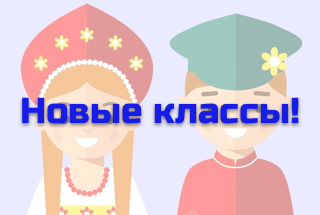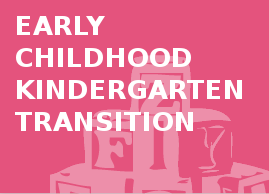«« all classes are taught in Russian »»
НОВЫЕ КЛАССЫ:
 Говорящая природа – Art Class: Talking Nature
Говорящая природа – Art Class: Talking Nature
Уникальный курс, который разработан специально для студентов нашей школы. Программа курса обучает видеть природу, вглядываться в неё, учит излагать мысли через художественное описание природы, вызывает любопытство и способствует творчеству через сенсорные испытания.
Студенты на занятиях будут работать с разнообразным природным материалом: сухими цветами и фруктами, листьями и ветками, ягодами, перьями и камнями и т.д. Будут изготовлять многоцветные мозаики животных и птиц, коллажи зимних пейзажей, а также другие произведения искусств, изучая при этом материал, с которым они будут работать.
В мире животных – The World of Animals
Через занимательные рассказы и шуточные истории данный курс познакомит студентов с основными группами животных: черви, насекомые, гады, рыбы, птицы, звери; c чертами их строения и образа жизни; c ролью в природе и в жизни человека. По возможности предполагается использование живого материала. В процессе урока будут создаваться модели различных животных из разнообразных материалов, а также их зарисовки.
ЗАНИМАТЕЛЬНАЯ ЛИТЕРАТУРА – Enjoyable Literature
Курс нацелен на развитие речи детей – билингвов. Знакомство с произведениями происходит в игровой форме. Используются интерактивные игры, логопедические задания для формирования правильного произношения звуков, обсуждение прочитанного, цепные рассказы, работа над выразительным чтением, заучивание наизусть на уроке. Тексты читает учитель.
Танцы – Dance
Этот курс поможет детям пополнить словарный запас по темам «Части тела», «Глаголы движения» и описание движения в пространстве (вперед-назад, влево-вправо, быстро-медленно и т.д.). Занятия проходят в игровой форме под музыкальное сопровождение из классических произведений и детских песен и состоит из логоритмических, пальчиковых и подвижных игр.
Эволюция. Животные. – Evolution. Animals
Курс позволит сформировать целостное представление о животном мире, его разнообразии и эволюции. Каждая тема включает в себя сведения об одной из классификационной групп животных, особенностях их строения, экологии, значение в природе и жизни человека. По возможности предполагается использование живого материала. Практическая часть включает изготовление моделей животных из различных материалов (бумага, картон, пластик), а также зарисовки.
Музыкальный театр своими руками – Handmade Musical Theater
Данный курс способствует развитию воображения и приобретения навыков правильной связной речи. На каждом уроке студенты будут слушать короткое музыкальное произведение или смотреть отрывок из детского музыкального фильма/сказки. Студенты с удовольствием не только смотрят представления и обсуждают их, но и принимают активное участие в создании театра, изготавливая игрушки-
«« For more in-depth descriptions of classes, please contact Larisa at (510) 730-0277 »»
Core Classes:
Pre-Kindergarten/Kindergarten Program (Ages 3-4)
Come Play With Us! Learn Through Play (Alphabet & Arithmetic)
The Orff Method, created by Carl Orff, is a way of teaching children music that engages their whole self, physically and mentally. it is a mixture of dancing, singing, using percussion instruments and, at times, acting. This method values the role of play and movement while learning different concepts. Because improvisation and participation is encouraged in the Orff method, students have a greater sense of ownership, since it is their classmates and them that create the music. The classroom then becomes a place of excitement and fun. (from “Incorporating the Arts”, wikispaces)
![]() Russian Language & Literature Program
Russian Language & Literature Program
Teachers at the Berkeley Russian School have extensive experience teaching the Russian language. The school accepts students with varying levels of Russian proficiency, which requires the instructors to have a flexible approach to teaching. They employ various methods and approaches to meet the needs of all their pupils.
In addition, teachers strive to have age-appropriate activities and expectations for all of their students. The youngest children at the school are three to four years old and are working on pre-literacy skills. The focus for this age is on developing logical thinking through playing games and solving basic problems; developing fine motor skills, which are essential when learning to write; and memorizing Russian poems and rhymes to improve memory and familiarity with the Russian language. Perhaps the most important activity, however, is speaking Russian in class with the teacher and with fellow students. The program is designed to develop and improve Russian vocabulary and communication skills as well as introduce literacy concepts and the Cyrillic alphabet.
The language program for the older children is tailored to meet the needs of the current group of students. The selection of books for reading depends on the students’ language proficiency, interests and academic needs, and does not necessarily coincide with the list of obligatory reading in Russia. The teachers have extensive experience in language instruction and childhood development and are able to create a program that fits the needs of students learning Russian outside of Russia. The end result is that students are able to write essays and take dictations in a grammatically and stylistically correct fashion.
![]()
Mathematics Program
The intention of this program is to introduce students to math as an organic language that can be enjoyed. The problems presented in classes are intended to incite mathematical creativity and encourage logical thinking; they are taken from everyday life with additional components of adventure with a variety of games added to appeal to each particular age group. After finding solutions, students are encouraged to explain and defend their solutions to the group.
The classes are kept intentionally small and are tailored to meet the needs of each individual student.
Chess
In our chess classes children learn solving chess problems as well as chess strategy. Numerous exercises help students learn, practice, and master the game. Steady progress builds their enthusiasm, as students master valuable skills and learn to transfer these skills to new situations. Most importantly children learn how to enjoy the game by playing with a partner.






